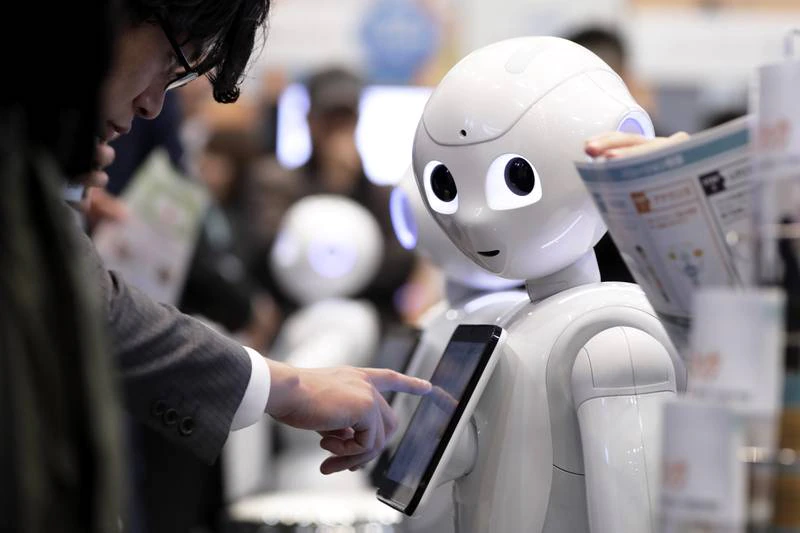AI start-up funding hits record $17.9bn in Q3
13 November, 2021

Artificial intelligence start-ups continue to attract increased investments, reporting mega deals in the third quarter of the year even as many businesses struggled due to the economic effects of the Covid-19 pandemic, a report has shown.
AI start-ups raised a record $17.9 billion in funding across 841 deals globally in the July-September period, CB Insights revealed in its latest report. This marks an 8 per cent jump in funding and a 43 per cent surge in the number of deals on a quarterly basis.
The year-to-date funding for AI companies stood at $50bn, surpassing 2020 levels by about 55 per cent, the New York-based intelligence and research company found.
Mega-rounds (deals worth more than $100 million) accounted for about 5 per cent of total deals in the third quarter and there were more than 45 mega-round deals in each of the first three quarters in 2021 — the highest quarterly numbers ever.
This is compared to last year, when only 79 mega-rounds took place, the report said.
The third quarter also reported 104 merger and acquisition deals related to AI start-ups, a yearly increase of almost 197 per cent.
“Quarterly M&A deals have surpassed 100 for two consecutive quarters, putting total M&A exits at a record 253 in 2021 YTD. Annual IPOs [initial public offerings] and Spacs [special purpose acquisition companies] are also up this year … in the third quarter, there were three Spacs and eight IPOs [related to AI companies],” CB Insights said.
The largest merger and acquisition deal of the quarter was PayPal’s purchase of buy now, pay later platform Paidy for $2.7bn. The Japanese payments platform uses machine learning to determine consumer creditworthiness and underwrites transactions instantly.
It was almost 370 per cent bigger than the next largest deal — the acquisition of Chorus.ai by Zoominfo for $575m.
The AI market is booming as governments invest in technology to drive efficiency and cost savings in the post-pandemic era.
The UAE, the Arab world's second-largest economy, is projected to benefit the most in the Middle East from AI adoption. The technology is expected to contribute up to 14 per cent to the country’s gross domestic product — equivalent to $97.9bn — by 2030, a report by consultancy PwC showed.
Overall, investors poured money into AI-focused companies at a historic rate during the Covid-19 pandemic, a separate study by Stanford University reported.
Total global AI investment, including private investment, public offerings, mergers and acquisitions, and minority stakes, increased by 40 per cent last year for a total of $67.9bn, compared with a 12 per cent jump from 2018 to 2019, the Stanford study said.
The third quarter also included the emergence of 13 new AI unicorns — nine in the US and two each in Latin America and Asia, CB Insight said. This brought the total number of billion-dollar AI start-ups to 119 in the third quarter, almost 60 per cent more than the same period last year.
Three AI start-ups reached $2bn or more in valuation, with smart search developer Algolia the highest-valued new unicorn in the third quarter at $2.2bn. Computer vision start-up Black Sesame Technologies and drug discovery start-up XtalPi were each valued at $2bn.
Healthcare AI companies attracted the maximum annual investment at $8.5bn this year (January-September period), surpassing 2020’s record of $6.6bn. It was followed by the FinTech ($3.1bn) and retail ($2.6bn) sectors.
The third quarter was healthcare AI’s strongest quarter ever, with $3.2bn raised across 149 deals. FinTech and retail raised $1.2bn (68 deals) and $740 million (38 deals), respectively, in the three-month period.
US-based AI companies led fund raising in the third quarter, raising $10.4bn from 324 deals, up more than 120 per cent from the $4.7bn raised through 225 deals in the prior year period.
AI start-ups based in Asia raised $4.8bn from 321 deals, about 129 per cent more on a yearly basis. Canadian start-ups raised $446m from 24 deals in the quarter against only $81m raised during the same period last year.
Source: www.thenationalnews.com
TAG(s):
